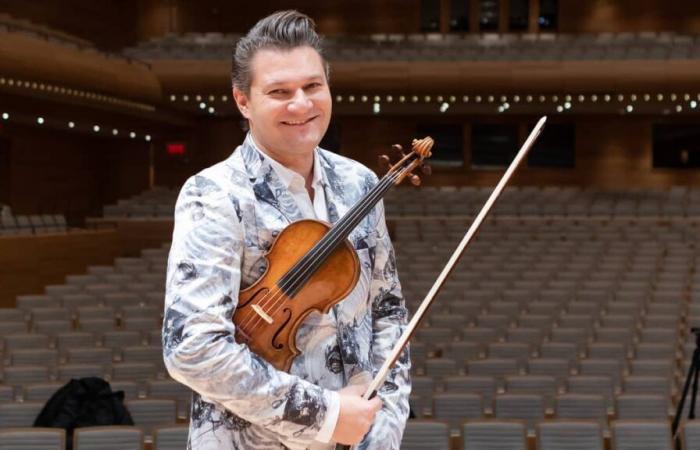
At a time when Canada is worried about the Trump administration imposing tariffs of 25% on certain products, an internationally renowned Quebec musician denounces the unfair treatment to which Canadian artists who want to play in the States have long been subjected. -United.
In an open letter sent to Journal, conductor and solo violinist Alexandre Da Costa even goes so far as to assert that local artists are discriminated against compared to their American counterparts.
• Also read: Quebec and Canadian artists are already, and have been for a long time, discriminated against in the United States
“Potential new American customs tariffs have already been applied to Quebec and Canadian artists for several decades,” maintains the man who is also the artistic director of the Orchester philharmonique du Québec.
In question, the famous P2 visa that artists who want to work in the United States must obtain. In its regular version, it now costs $510 US ($730 CAN), plus an administration fee of $125 CA, and delivery can take up to 10 months.
A premium visa, available in 30 days, is offered, but you have to pay an additional US$2,805 to obtain it, which represents a total sum of nearly CA$5,000.
No need for a license
In return, American musicians, with a few exceptions, do not need a work permit to come and play in Canadian concert halls.
“It’s an incredible injustice,” says Alexandre Da Costa in a conversation with The Journal.
“For example, an American orchestra invited me next October. That means in less than 10 months. To arrive on time, I have to pay the premium, but at $5,000 + $1,000 for travel + $500 for hotel, it’s impossible with the fee they give me.”
-So should American artists be taxed in return? “Absolutely,” he says.
Steal from the work
Without going so far as to speak of injustice, the president of the Guild of Musicians of Quebec agrees that the treatment is not fair.
“In the eyes of the United States, an artist who goes to play there is stealing work from one of their citizens. According to them, to have the privilege of playing at their home, you have to pay for it,” says Vincent Séguin.
The solution is not easy to identify. “Some say we should lobby to make it more difficult for Americans to come and play here. I don’t know if this is the solution. The goal would be that we can all easily go and play at each other’s houses,” hopes Mr. Séguin.
Lobbying
Director of the Canadian branch of the American Federation of Musicians, Liana White recalls that lobbying is regularly carried out with the government and the United States Citizenship and Immigration Services (USCIS), not without success.
“USCIS had proposed an increase in visa fees from $460 to $1,615. Thanks to our lobbying, this increase was reduced to US$510.”
She recalls that the requirements for artists who come to play in Canada were relaxed in 2014.
“As trade is a hot topic, perhaps Canada should restore past practices,” suggests Mme White.




